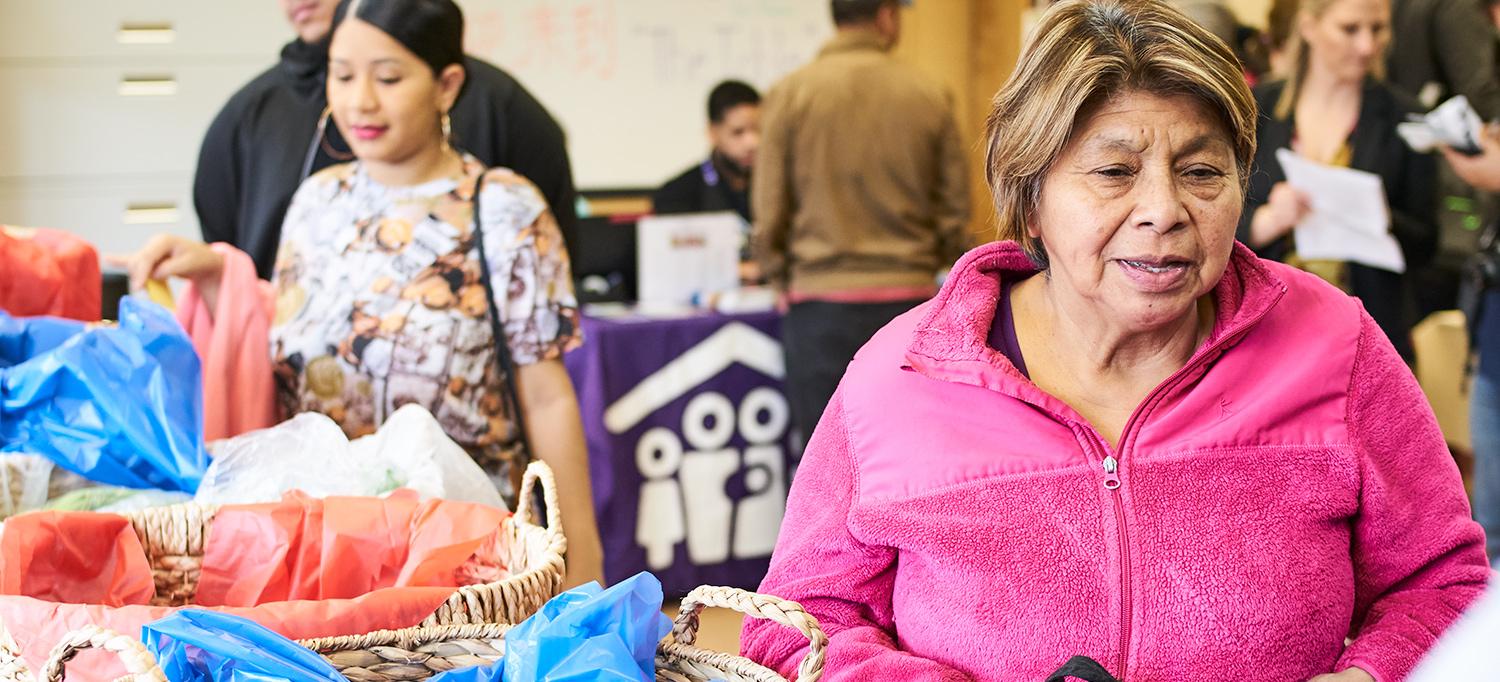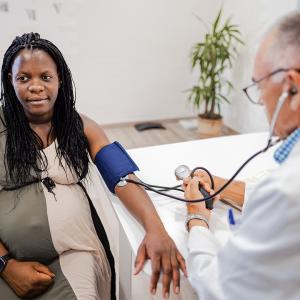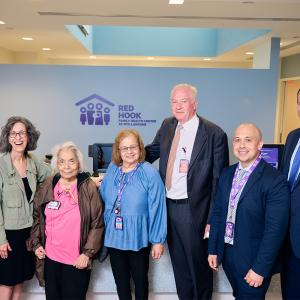
The Family Health Centers at NYU Langone tackle nonmedical factors that significantly impact health in Brooklyn communities.
Photo: James Yarusinsky
New York is one of the most affluent cities in the world. But some borough communities continue to struggle with a lack of food and access to education, as well as many other nonmedical factors that significantly impact quality-of-life and health.
For decades, the Family Health Centers at NYU Langone has worked as a safety net provider for the poor and medically underserved in New York City. A recent survey among pregnant women receiving care at the Family Health Centers at NYU Langone found that underachievement in education, lapses in access to nutritional food, and lack of affordable housing were top socioeconomic challenges.
“Our Family Health Centers provide care to more than 130,000 people, ranging from infants, teens, adults, and seniors—more than 80 percent of whom live in poverty,” says Larry K. McReynolds, executive director of the Family Health Centers at NYU Langone. “We are in their neighborhoods and schools where care is convenient and easily accessible. But there’s much more that we can do.”
Disparities within the patient population utilizing the Family Health Centers at NYU Langone provide an opportunity to evaluate cause and effect.
“Poverty, low education, and limited English proficiency adversely impact overall health in our most vulnerable communities,” says Isaac P. Dapkins, MD, chief medical officer of the Family Health Centers at NYU Langone, among the nation’s largest federally qualified health centers. “We screen for social determinants of health, such as food insecurity or housing instability, and track interventions and outcomes using a standardized screening tool integrated within our electronic health record.”
Dr. Dapkins, a clinical assistant professor in the Department of Population Health and Department of Medicine at NYU Langone Health, is leading efforts to look deeper into the role of socioeconomic conditions, and what interventions improve the health of Family Health Centers at NYU Langone patients. A new set of digital tools, released by Portland-based health information company OCHIN in partnership with the National Association of Community Health Centers, integrates health data on social determinants into Epic, NYU Langone’s electronic health record.
“There is a high correlation between socioeconomic factors and many of the diseases that are commonly seen in impoverished neighborhoods,” says Dr. Dapkins. “Resolving social determinants will ultimately build healthier, stronger communities.”
For example, Dr. Dapkins points out that lack of access to high-quality, nutrient-rich food and excessive consumption of sugary beverages contribute to obesity and diabetes. Smoking and exposure to second-hand smoke, air pollution, harmful chemicals, and dust particles are directly linked to heart disease and cancer.
In addition, higher rates of asthma, chronic bronchitis, and other respiratory diseases are linked to poor housing and environmental conditions. And physical and emotional abuse, along with feelings of isolation and alienation, require long-term behavioral and mental health support.
Improving Health by Supporting Families
In addition to providing healthcare and education in community- and school-based health centers, “We provide health information and screenings, which are free and open to everyone, not just Family Health Centers at NYU Langone patients,” Dr. Dapkins says. “Some members of our staff even conduct tours of supermarkets to teach families about food choices and nutrition.”
An essential component of the Family Health Centers at NYU Langone network is its Family Support Center, which provides a variety of services to individuals and families with a range of concerns, including crisis intervention, domestic violence, child care, hunger, legal services, English language education, and housing issues.
“Two-thirds of the people referred to the Family Support Center are foreign-born, many of whom are only able to communicate in their native language, so we help them navigate often complex health and social service systems,” says Kathy Hopkins, vice president of community programs at the Family Health Centers at NYU Langone.
“We also offer adult education, job training and placement, and assistance with navigating governmental systems to apply for food stamps, housing subsidies, and other social programs, as well as mental health services,” adds Hopkins.
Dr. Dapkins concludes: “We know that poor health results in more visits to doctors and more hospitalizations. That is why it is so important to identify and help mitigate socioeconomic factors to reduce risks and improve our patients’ overall health.”
Media Inquiries
Colin DeVries
Phone: 718-630-7414
colin.devries@nyumc.org

